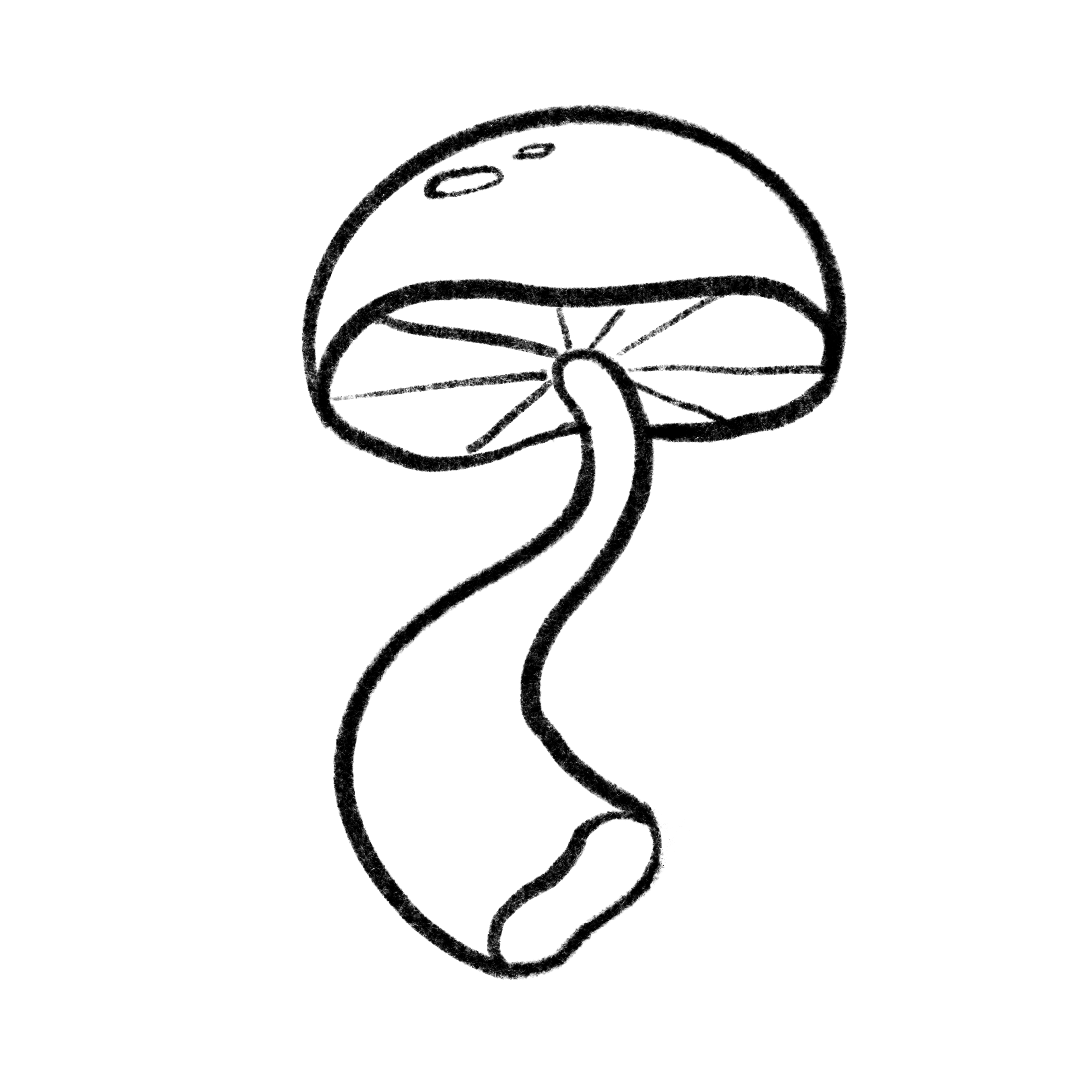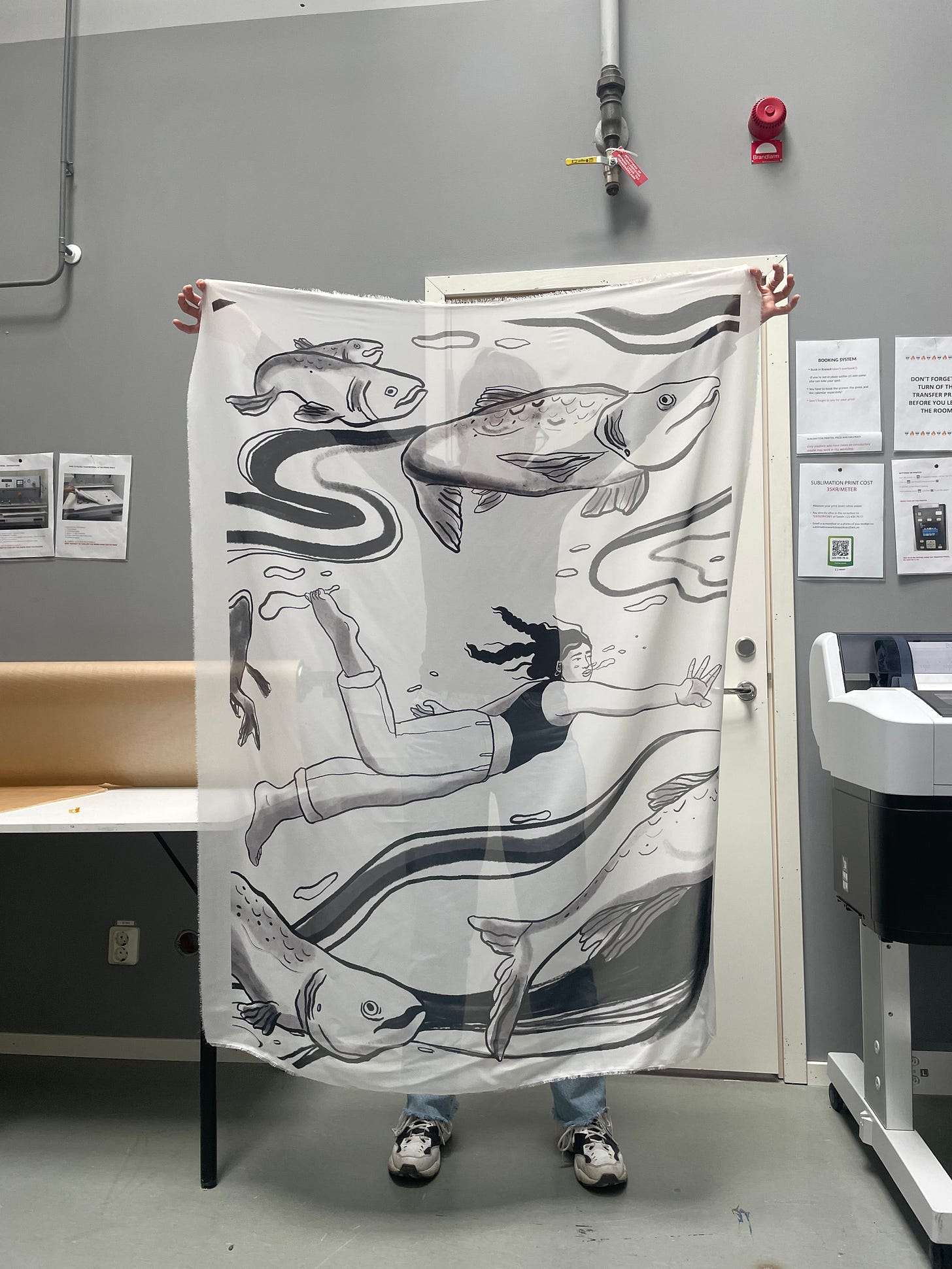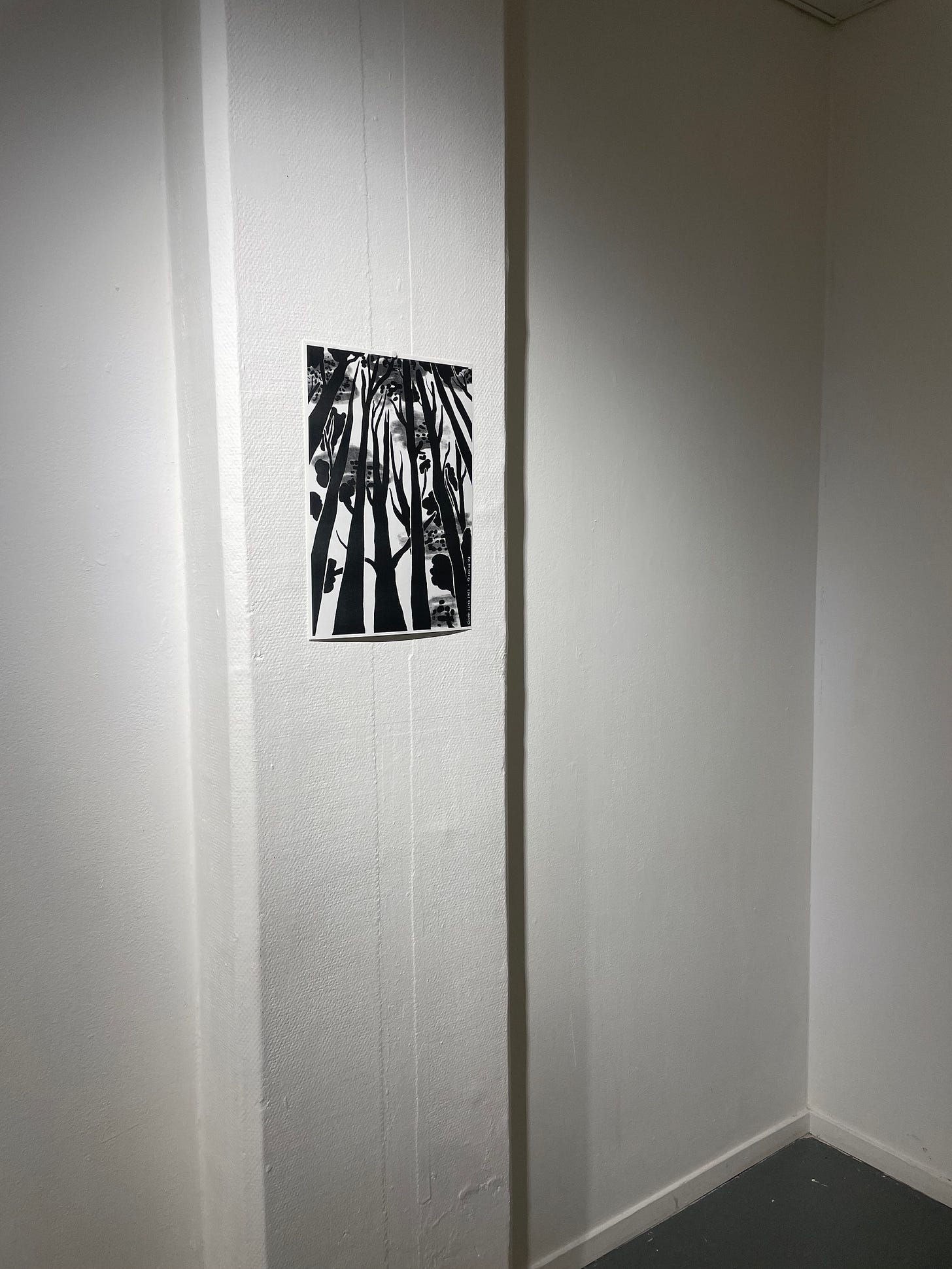On remembering rest is for humans
The idea of rest is often seen as radical—but the human body is not a machine.
Field Notes on Flourishing is a monthly love letter exploring art, mindfulness, creativity, and the question of flourishing — by Ludi Leiva.
This newsletter is free but you can become a paid subscriber for the price of about one or two coffee a month—or buy me a tea or coffee via Venmo or Paypal ☕️ Thank you for reading!
April hasn’t been the easiest month for me. One month ago, after a long week of making a series of 12 illustrations for part of my MFA project, I felt an intense pain radiating from my wrist up my forearm to my elbow. It was a Friday, and I chalked it up to overuse. I told myself I just needed to take the weekend off and I’d be just fine by Monday. I think my optimism was more an attempt to soothe my nerves: this, after all, was not the best time to lose the function of my primary work (and life) tool: my right hand.
But Monday came around and I still couldn’t do simple things—like take off a sweater over my head or hold a frying pan—without wincing in pain. I had to face it: I was injured.
I’ve had work injuries before, but this felt different. After consulting with a doctor and a physical therapist, I realized my only choice was to rest. Weeks out from finishing my MFA, with client projects in the pipeline, and an exhibition to design, I was forced to sit down on the bench. And what a humbling experience it turned out to be.
I spent three weeks with a brace on, unable to draw. I was also unable to handwrite or even type for longer than a few minutes without pain. So I focused on other things: daydreaming, doing some printmaking, and above all resting. Even though I knew it was what I had to do and that, frankly, I had no choice in the matter, it also meant that I was left feeling kind of powerless while all kinds of stress swirled in my mind. I did my physical therapy exercises, visualized all the things I wish I could have been drawing (which actually has turned into a practice of mental sketching), and just waited.
By the time this week rolled around, I started to feel an improvement. I cautiously started using my hand again and also began re-teaching myself to draw and write with a new pencil grip that wasn’t so straining (I used an improper grip before). This felt super strange and brought me back to primary school: my letters felt big and unwieldy and the things I drew felt loose and clumsy. After a few days, I was drawing for short stretches without pain, and my text and drawings began to look more like their old selves again.
I’m tiptoeing forward cautiously, but with the reminder that I am a fallible human and not a machine. As much as I (or my ego) like to try and trick myself into the belief that I am capable of working as much as I want, as hard as I want, for as long as I want without any consequences, I have been once again nudged by the universe to remember that I must treat myself—body and mind—with respect and reverence. This means that as much as I love to create, I must also recuperate—however inconvenient or difficult doing so may be.
It’s interesting being in a field of work where your physical body is your work tool. To create in the way that I do means using not only my mind and heart but my body—my hands, my fingers, my arms, my back, my neck, my eyes—which is vulnerable to strain and injury.
Living in late capitalism, burdened by geopolitical and economic decay, the idea of rest is seen as radical. But this experience has made very real to me the fact that, in actuality, there is nothing radical about rest. As much as biohacking, the rise of AI, and the late capitalist love affair with productivity as a signifier of worth may have us thinking or feeling that we must constantly optimize and overwork ourselves—in order to survive, to compete, to matter—the human body is not a machine. And I am deeply humbled by and grateful for the reminder.
Take good care of yourselves.
Thich Nhat Hanh on rest
“But there is in us what we call the energy of restlessness. We cannot be at peace with ourselves. We cannot be peaceful. We cannot sit; we cannot lie down. There is some energy in us to do this, to do that, to think of this, to think of that, and that kind of restlessness makes us unhappy. That is why it is so important for us to learn first of all to allow our body to rest. We have to learn how to deal with all our energy of restlessness.”
Read the full reflection here.
A poem
This being human is a guest house.
Every morning a new arrival.
A joy, a depression, a meanness,
some momentary awareness comes
as an unexpected visitor.
Welcome and entertain them all!
Even if they’re a crowd of sorrows,
who violently sweep your house
empty of its furniture,
still, treat each guest honorably.
He may be clearing you out
for some new delight.
The dark thought, the shame, the malice,
meet them at the door laughing,
and invite them in.
Be grateful for whoever comes,
because each has been sent
as a guide from beyond.
— Rumi, The Guest HouseSome works-in-progress
📢 ANNOUNCEMENT COMING SOON
I’m partnering with a shop to start selling prints and some other fun things again.
Keep an eye on my Instagram for an announcement next month 👀
I exhibited some work-in-progress / print experiments this month

I also updated my website ヅ
Sending a virtual hug ✨
Your being here supports my art and writing practice and means the world to me, thank you for reading.
If this newsletter resonated with you, you can support me by forwarding it to a couple of friends who you think might also be interested in receiving it.








I tell my stressed-up daughter over and over: rest is a part of the creative routine. Sometimes easy to forget, though. Thank you for the reminder.